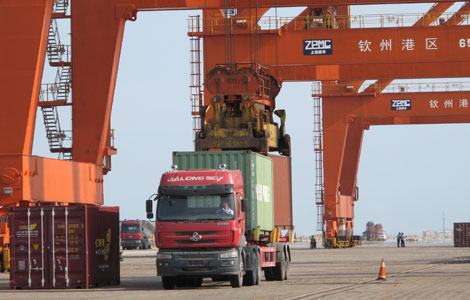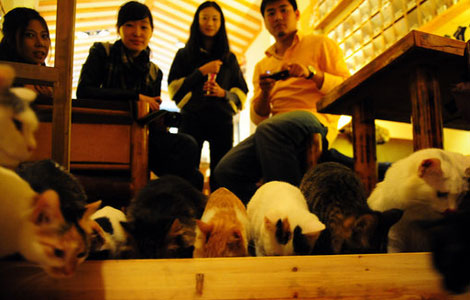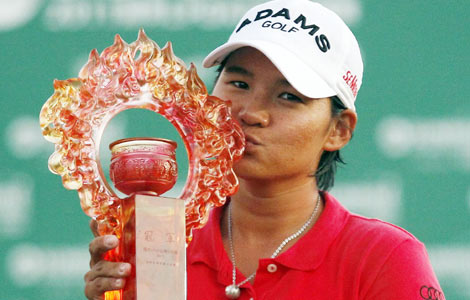Wen stresses inflation control, policy fine-tuning
Updated: 2011-10-25 22:35
(Xinhua)
|
|||||||||||
TIANJIN - China will maintain control of the intensity, pace and focus of economic regulations and properly fine-tune economic policies, Premier Wen Jiabao said Tuesday.
Keeping consumer prices stable will remain the government's top priority, Wen said.
Wen made the remarks during a two-day inspection tour of the Binhai New Area in northern port city of Tianjin, during which he held talks with leading officials from Tianjin, Inner Mongolia Autonomous Region and the provinces of Jiangsu and Shandong.
Policymakers should be sensitive to signs of new problems and make decisive moves accordingly, Wen said.
For the duration of this year, the government should consolidate the momentum of China's economic development and focus on outstanding problems while attaching more importance to improving people's livelihood, Wen said.
The government will maintain reasonable growth in bank lending and boost structural tax reductions, Wen said, adding that more financial support should be given to small and medium-sized enterprises and projects that improve people's well-being.
The government should also work to ensure adequate food supplies, improve the country's distribution system and strengthen price regulations in order to combat inflation, Wen said.
China will also maintain consistency and stability in its export policies to keep exports balanced and growing steadily, Wen added.
China's GDP expanded by 9.1 percent year-on-year in the third quarter of this year, the slowest pace since the third quarter of 2009, down from 9.5 percent in the second quarter and 9.7 percent in the first quarter.
China's consumer price index (CPI), a main gauge of inflation, eased to 6.1 percent in September from 6.2 percent in August and a 37-month high of 6.5 percent in July. The government's full-year target is around 4 percent for the year.
During his inspection, Wen also visited high-tech enterprises and held talks with entrepreneurs in emerging industries to learn about their problems and difficulties in acquiring bank loans and supportive policies.
More effort should be put into developing the real economy, especially strategic emerging industries, to reduce the impact of the continuing global economic crisis, Wen said.
In facing a crisis, a country will only survive with a well-developed real economy led by innovation and high-tech industries, he said.
Local governments should give their full support to high-tech enterprises and back up their research, while commercial banks should provide more funding to small and innovative firms, Wen added.
Hot Topics
New sex education textbooks were introduced to pupils in Shanghai on Monday after numerous debates on early-age sex education in China.
Editor's Picks

|

|

|

|

|

|







